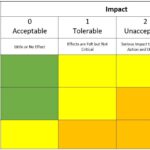Investments made in your own business or in the stock market have investment risks related to macro-environmental forces that can be broken down into seven distinct types of risk.
Business Risk
We would all agree that some business ventures are riskier than others. A product-based business focused on a new product in a brand new category is riskier than, say, a service-based cleaning company that operates in an established service category.
Market Risk
Many businesses were wiped out when the stock market crashed in 2008, affecting all businesses. While the genesis of the crash was related to the housing bubble, many businesses not in the housing industry were caught up in the crash and were forced to close their doors.
Interest Risk
Since 2009 business has enjoyed a near zero Federal Funds Rate that has made business borrowing inexpensive. This trend will surely not continue, and when interest rates rise they will put additional pressure on businesses’ cash-flows as they are forced to pay more interest on the debt.
Inflation Risk
Generally, a dollar today has greater purchasing power than the same dollar next year. Therefore, investments that have a fixed return over a longer period have a greater inflation risk than ones with a variable return over a shorter period.
Regulatory/Legislative Risk
Laws occasionally change and can have profound effects on businesses and whole industries. New gun legislation in Colorado forced companies like Magpul to move. Furthermore, it is not hard to see how changes in corporate income tax rates and capital gains taxes would affect business investments.
Liquidity/Marketability Risk
When you own an interest in a privately held business there is essentially no quick and easy way to sell some or all of your interest if you need access to your invested capital. However, if you own unrestricted stock in a public company, as an investor you can simply call your broker and instruct him to sell.
Opportunity Risk
If you owned a business over the past five years that essentially has been moving sideways and not growing, you experienced opportunity risk. Had you sold or liquidated your business in the summer of 2009 when the market was down, and invested the money you had left in a spider (SPDR) that tracked the S&P 500, and then looked at the stock price five years later in the summer of 2014, you would have seen a threefold increase in your investment. Since your money was tied up in your business you missed out on the growth you could have had if you invested the money on the S&P 500 vs. in your own business.
All investments, whether in your business or in the equities market, have risk.
Have you considered all seven types of risk with respect to your investments?












